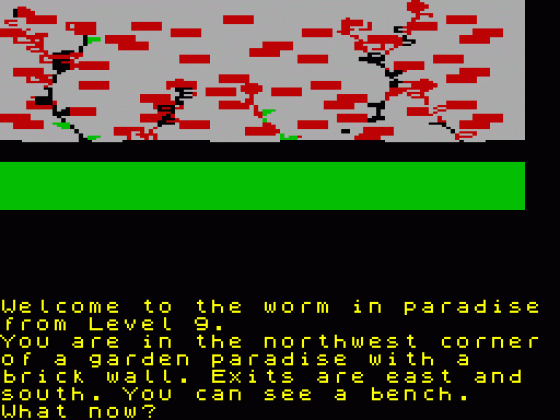Other Reviews Of The Worm In Paradise For The Spectrum 48K/128K
The Worm In Paradise (Level 9)
A review by Grim Reaper (Your Sinclair)
The Worm In Paradise (Level 9 Computing)
A review by Richard Price (Sinclair User)
The Worm In Paradise (Level 9 Computing)
A review by Gordon Hamlett (Computer Gamer)
The Spectrum Collection: Update
One year on from the Spectrum Collection, Tony Hetherington picks the best Spectrum games
The Worm In Paradise (Level 9 Computing)
A review


 1st March 1986
1st March 1986







